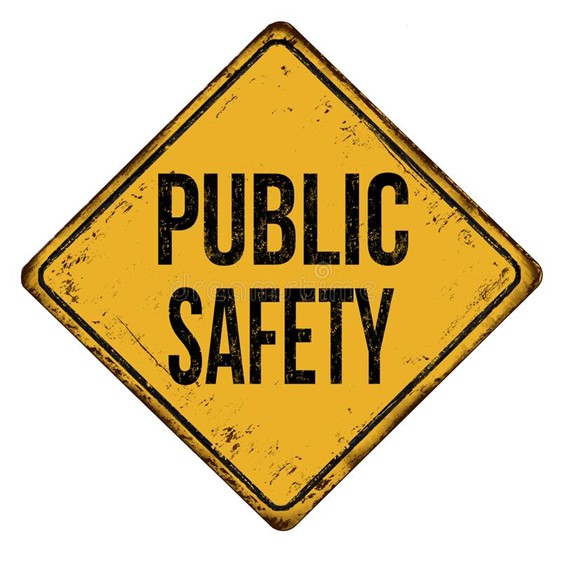Alarm About CRESS Program Grows

Photo: Akwesasne Mohawk Police Service
Report on the Discussion of CRESS at the October 2, 2023 Meeting of the Amherst Town Council
This meeting was conducted in hybrid form and was recorded. It can be viewed here.
Present
In Town Hall: Lynn Griesemer (President, District 2), Pat DeAngelis (District 2), Jennifer Taub (District 3), Mandi Jo Hanneke and Andy Steinberg (at large), Pam Rooney and Anika Lopes (District 4), and Ana Devlin Gauthier (District 5). Participating remotely: Dorothy Pam (District 3) Michele Miller (District 1), and Ellisha Walker (at large). Absent: Cathy Schoen (District 1) and Shalini Bahl-Milne (District 5).
Staff: Dave Ziomek (Assistant Town Manager) and Athena O’Keeffe (Clerk of the Council)
The director of the CRESS (Community Responders for Equity, Service, and Safety) program, Earl Miller, has been on administrative leave for almost two months. Recently, Town Manager Paul Bockelman appointed a four-person team to lead the program temporarily under the guidance of Pamela Nolan Young, Director of the Department of Diversity, Equity, and Inclusion. In addition to Young, the leadership team includes a member of the police department, the fire chief, and CRESS implementation director Kat Newman.
From the outset, there has been opposition both outside and within CRESS regarding a police officer being involved in leadership of the program, which was established as an alternative to the police for providing public safety.
Residents are also dismayed that, despite being trained to handle 911 calls since January, 2022, CRESS has been prevented from responding to them due to what are termed “dispatch issues.” Recently, several responders have resigned, leaving the future of the program in peril. This worry was expressed during the public comment period. Russ Vernon Jones said it was important to reaffirm the purpose of the program and assure that it is carried out, i.e., specifically that CRESS has to be able to respond to 911 calls. He noted that many members of the BIPOC community feel unsafe with the police. He noted that CRESS was created as an actively anti-racist department that can serve as a model for other departments.
Brianna Owen, former co-chair of the Community Safety Working Group (CSWG) (which drew up the plan for CRESS), urged the town to collaborate with the Community Safety and Social Justice Committee (CSSJC) to resolve problems with CRESS. She noted that this is a pivotal moment for the program.
Pat Ononibaku, a former member of both committees, noted that the mental health organization Clinical and Support Options (CSO) is advertising for a co-response clinician to work with the Amherst Police Department, with many of the same responsibilities as CRESS. These are listed as:
• Actively participate in 911 and emergency calls at the direction/request of partnering police departments.
• Provide behavioral health assessments to individuals and families in crisis who encounter the police.
• Serve as primary liaison to law enforcement on assigned shift.
• Accompany first-responding officers to call out situations.
• Provide initial crisis intervention services to individuals in need, along with crisis case management and short-term crisis counseling as follow-up from initial intervention, when appropriate.
• Provide leadership in development of co-response model and represent the program in a prepared and professional manner at community events, task forces, and public speaking engagements.
• Maintain linkages with law enforcement and community agencies by providing documented case consultation, program development and problem resolution.
• Provide information and referral services to individuals and families.
• Maintain necessary documentation, data entry, and records in accordance with program requirements.
• Meet and maintain billable unit targets as required to sustain program.
• Develop and maintain a thorough knowledge of managed care and health insurance systems; provide other clinicians with managed care information and resources pertinent to the crises being managed.
• Participate in cross training of law enforcement and crisis team staff.
• Prepare for and facilitate Operations meetings with Police Department.
• Participate in ongoing training and to keep informed of current trends and developments in the field of mental health.
Ononibaku also said she believes that, by not budgeting for 24/7 coverage by CRESS and not allowing CRESS to respond to 911 calls, the town has set CRESS up to fail.
Several town councilors were surprised to learn of the troubles at CRESS. Jennifer Taub (District 3) asked how many responders had resigned, but no one at the meeting knew. Dorothy Pam (District 3) said, “I’m hoping that Amherst did not have its moment in the sun, leading in social justice just to have it fade for lack of follow through and lack of funding.”
Ellisha Walker (at large), the other co-chair of the CSWG, wanted an update on CRESS to be part of a future Town Council agenda, possibly at a joint meeting with the CSSJC. She asked for updates about “what is happening with the director, what is happening with the responders, what has been happening with the budget, and what our strategic plan is for moving forward.” She said the meeting has to be timely because of the state of the department. She also wanted to know how the CSO-contracted position for a co-responder for the Amherst police was created and why it had not been brought to the council’s attention, and asked if money used for that position should have gone to CRESS. Andy Steinberg (at large) also asked for a report on what is happening with dispatch and cooperation among the public safety departments.
Council President Lynn Griesemer (District 2) said she would put them up for discussion at a meeting with the police chief in the near future. The next council meeting will take place on October 16, and the one after that will be on November 13, after the elections.
